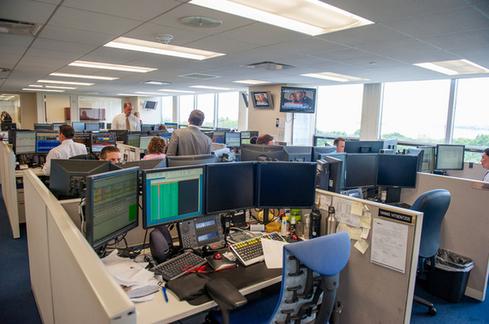11:45 AM
Deconstructing "Too Big to Fail"
AIG was deemed too big to fail; Lehman Brothers was not. But less than a month after the government allowed Lehman to collapse, with trillions of dollars lost in the markets, hindsight -- always 20/20 -- says it wasn't a good decision. Investor confidence is a fickle thing. When the government decided enough was enough and that Lehman would have to go down in history as the investment bank that failed, investors surmised that all banks would have to go it alone without support from the Federal Reserve or U.S. Treasury. Yikes.
I won't bore you with the recent history that followed the decision to let Lehman falter, but determining which bank is too big to fail is a difficult, if not impossible, task. From a size standpoint, Lehman was tiny compared to AIG. If AIG were to fail, the remainder of the insurance industry would not have enough capacity to take on all of the former AIG policies, forcing many to go without insurance and drastically disrupting the global financial markets. Lehman's business, on the other hand, could be absorbed by the rest of the industry -- or so the thinking went. But in the end, it was Lehman and the public's shaken confidence that brought the global markets to their knees.
But how does the industry learn from recent history to prevent it from happening again? Preventing this from recurring is even more important now that all of us are part owners of the nine largest financial institutions in the U.S. after the federal government assumed stakes in the firms. Effectively, all citizens are now stockholders. So when (not if, because it will happen again) the next big financial meltdown happens, how will investors and taxpayers be protected from bailing out a firm that is "too big to fail"?
Are enormous financial institutions good for business and profits, but dangerous to society when they become too entrenched and too intertwined in the world's economy? At what point do they become too big, and should someone have the power to say so? In other words, do we need a preemptive bailout policy? I certainly don't think so, but the government should never be forced to bail out banks -- the once shining symbol of capitalism -- ever again.
So how will the government ensure this possibility is avoided? Unfortunately, increased regulation -- some of which will be excessive -- will rule the day for the foreseeable future. Maybe then the industry will regain enough credibility so it can work to find a middle ground between the excessive deregulation that caused much of today's problems and the overregulation that is just around the corner.
Greg MacSweeney is editorial director of InformationWeek Financial Services, whose brands include Wall Street & Technology, Bank Systems & Technology, Advanced Trading, and Insurance & Technology. View Full Bio























